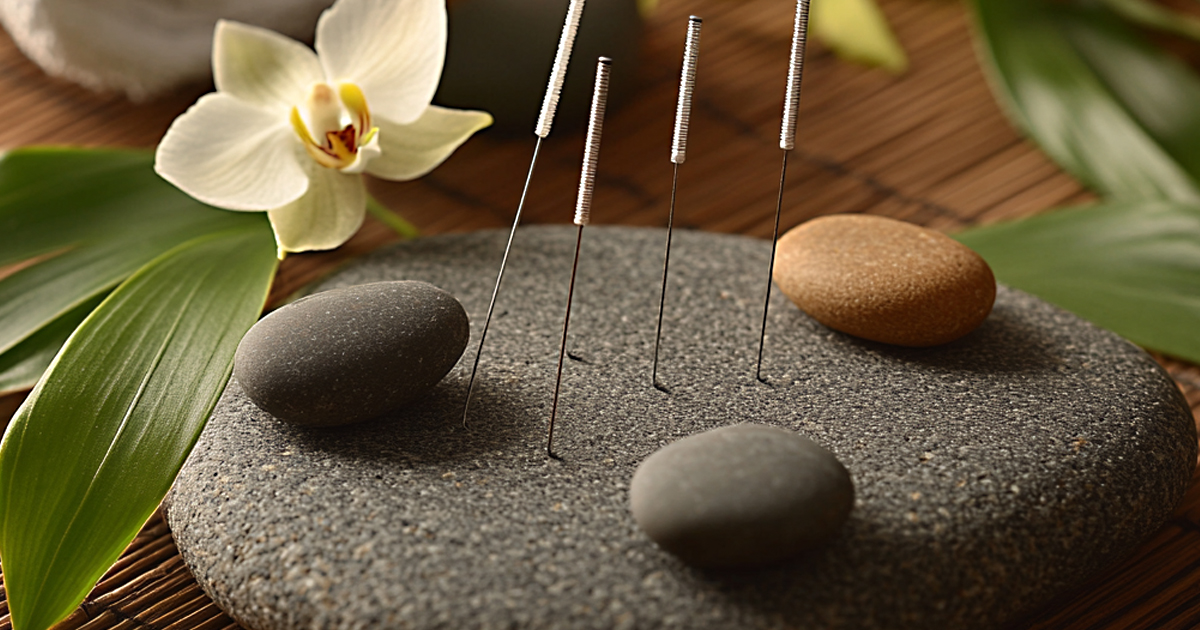Holistic wellness is an approach to health that considers the whole person, including their physical, mental, emotional, and spiritual well-being. Unlike traditional medicine that often focuses on treating specific symptoms or illnesses, holistic health aims to promote overall wellness by addressing the root causes of health issues and encouraging a balanced lifestyle.
Alternative therapies play a crucial role in holistic wellness. These therapies include practices such as acupuncture, chiropractic care, herbal medicine, yoga, and meditation. They are often referred to as natural healing methods because they utilize non-invasive techniques and natural substances to support the body’s innate ability to heal itself.
Integrative medicine is another key component of holistic wellness. This approach combines conventional medical treatments with alternative therapies to provide a comprehensive plan for patient care. By integrating these diverse methods, practitioners aim to achieve optimal health outcomes while minimizing side effects and enhancing quality of life.
In summary, understanding holistic wellness involves recognizing the interconnectedness of various aspects of our well-being. Alternative therapies offer valuable tools for achieving balance and promoting natural healing within this framework.
Popular Types of Alternative Therapies and Their Benefits
Alternative therapies have gained widespread popularity as complementary treatments to conventional medicine. These therapies often focus on holistic health and wellness, addressing both the mind and body. Here are some popular types of alternative therapies and their benefits:
Acupuncture
Originating from Traditional Chinese Medicine, acupuncture involves inserting thin needles into specific points on the body to balance energy flow. It is known for its effectiveness in relieving chronic pain, reducing stress, and improving overall well-being.
Aromatherapy
This therapy uses essential oils extracted from plants to promote physical and emotional health. Aromatherapy can help alleviate anxiety, improve sleep quality, boost mood, and even enhance cognitive performance through the inhalation or topical application of these oils.
Herbal Medicine
Utilizing natural plant extracts, herbal medicine aims to treat various ailments and support overall health. Herbs such as echinacea for immune support or ginger for digestive issues are commonly used. Herbal remedies can offer a gentler alternative with fewer side effects compared to synthetic drugs.
Chiropractic Care
Focusing on musculoskeletal alignment, chiropractic care involves manual adjustments of the spine and other joints. It is widely recognized for treating back pain, neck pain, headaches, and improving mobility by restoring proper alignment.
Meditation
This practice involves mindfulness techniques that promote relaxation and mental clarity. Regular meditation can reduce stress levels, enhance emotional health, improve concentration, lower blood pressure, and foster a sense of inner peace.
Yoga Therapy
Combining physical postures (asanas), breathing exercises (pranayama), and meditation techniques (dhyana), yoga therapy aims to harmonize body and mind. It offers numerous benefits including increased flexibility, strength building, stress reduction, improved respiratory function, and enhanced mental focus.
These alternative therapies provide diverse approaches to achieving optimal health by addressing various aspects of an individual’s well-being. Integrating them into your lifestyle can offer significant benefits alongside traditional medical treatments.
The Science Behind Alternative Therapies: Evidence and Research Findings
In recent years, alternative therapies have garnered significant attention as complementary approaches to conventional medicine. The growing interest in these holistic treatments has prompted extensive research to evaluate their efficacy and understand the underlying mechanisms that contribute to their healing effects.
Scientific studies on natural healing methods encompass a wide range of therapies, including acupuncture, herbal medicine, chiropractic care, and mindfulness practices like yoga and meditation. Researchers aim to determine the efficacy of these treatments through rigorous clinical trials and observational studies. For instance, acupuncture has been shown in several studies to alleviate chronic pain conditions by stimulating specific points on the body that influence neural pathways.
Herbal medicine is another area where alternative therapies research has made substantial progress. Various plants and herbs have been found to possess bioactive compounds that can offer therapeutic benefits. For example, turmeric contains curcumin, a compound with potent anti-inflammatory properties that may help manage conditions such as arthritis.
Mindfulness practices like yoga and meditation are also backed by scientific evidence highlighting their positive impact on mental health. Numerous studies suggest that these practices can reduce stress levels, improve emotional regulation, and enhance overall well-being.
While more research is needed to fully understand the potential of holistic treatments, existing evidence supports their beneficial role in promoting health and wellness. By continuing to explore the science behind alternative therapies, we can better integrate these natural healing methods into comprehensive healthcare strategies for improved patient outcomes.
How to Incorporate Alternative Therapies into Your Daily Routine for Optimal Health
Incorporating alternative therapies into your daily routine can significantly enhance your overall well-being and lead to optimal health. By adopting daily wellness practices, you can create a holistic lifestyle that balances mind, body, and spirit. Here are some integrative health routines and natural self-care strategies to consider:
- Mindfulness Meditation: Start your day with mindfulness meditation to center yourself and reduce stress. This practice promotes mental clarity and emotional stability, setting a positive tone for the rest of the day.
- Herbal Supplements: Integrate herbal supplements such as turmeric, ginger, or ashwagandha into your diet. These herbs have been shown to support immune function, reduce inflammation, and enhance energy levels.
- Aromatherapy: Use essential oils like lavender or eucalyptus in a diffuser to create a calming environment at home or work. Aromatherapy can help alleviate anxiety, improve sleep quality, and boost mood.
- Yoga or Tai Chi: Incorporate gentle physical activities like yoga or tai chi into your routine. These practices not only improve flexibility and strength but also promote relaxation and mental focus.
- Hydrotherapy: Take advantage of hydrotherapy techniques such as warm baths with Epsom salts or cold showers to invigorate the body and soothe sore muscles.
- Nutritional Adjustments: Follow a balanced diet rich in whole foods like fruits, vegetables, nuts, seeds, lean proteins, and whole grains. Proper nutrition is fundamental to maintaining energy levels and supporting bodily functions.
By integrating these holistic lifestyle tips into your daily regimen, you can cultivate an environment conducive to optimal health naturally and sustainably.
The Pros and Cons of Relying on Alternative Therapies for Wellness Management
Alternative therapies have gained significant traction in the realm of wellness management, often touted for their natural approach and holistic benefits. However, it is essential to weigh both the pros and cons before fully relying on these treatments.
One of the primary benefits of alternative therapies is their focus on treating the whole person—mind, body, and spirit. This holistic approach can lead to improved overall well-being and stress reduction. Techniques such as acupuncture, meditation, and herbal remedies are known to complement conventional medicine by alleviating symptoms without harsh side effects.
However, there are risks associated with holistic treatments that cannot be ignored. Unlike conventional medicine, which undergoes rigorous testing and regulation, many alternative therapies lack scientific validation. This can lead to ineffective treatment or even adverse reactions when not administered properly. Additionally, some individuals may forego necessary conventional medical treatments in favor of unproven alternatives, potentially exacerbating their health issues.
When comparing alternative therapies with conventional medicine, it becomes clear that each has its own strengths and weaknesses. Conventional medicine excels in emergency situations and acute care due to its evidence-based practices and advanced technology. On the other hand, alternative therapies shine in chronic disease management and preventive care by promoting a balanced lifestyle.
In conclusion, while alternative therapies offer several benefits for wellness management through their holistic approach, they also come with inherent risks due to a lack of regulation and scientific support. A balanced strategy that incorporates both conventional medicine’s reliability and the preventive strengths of alternative treatments may provide the most comprehensive path to health.
The Future of Holistic Wellness: Trends in Alternative Therapy Practices
The landscape of holistic wellness is evolving rapidly, with future trends in wellness therapy pointing towards a more integrative and personalized approach to health. Innovations in natural healing methods are at the forefront of this transformation, blending traditional practices with modern science to offer comprehensive care.
One significant trend is the growing popularity of integrative health approaches that combine conventional medicine with alternative therapies such as acupuncture, herbal medicine, and mindfulness practices. These methods aim to treat the whole person—mind, body, and spirit—rather than just addressing symptoms.
Technological advancements are also playing a crucial role in shaping the future of holistic wellness. Wearable devices and mobile apps designed for stress management, sleep improvement, and fitness tracking provide real-time data that can be used to tailor individualized treatment plans.
Furthermore, there is an increasing focus on mental well-being as an essential component of overall health. Practices like meditation, yoga, and sound therapy are gaining traction for their ability to reduce stress and enhance emotional resilience.
As these trends continue to develop, it’s clear that the future of holistic wellness will be characterized by a more inclusive and adaptive approach to health care—one that honors both ancient wisdom and contemporary innovations in natural healing methods.










